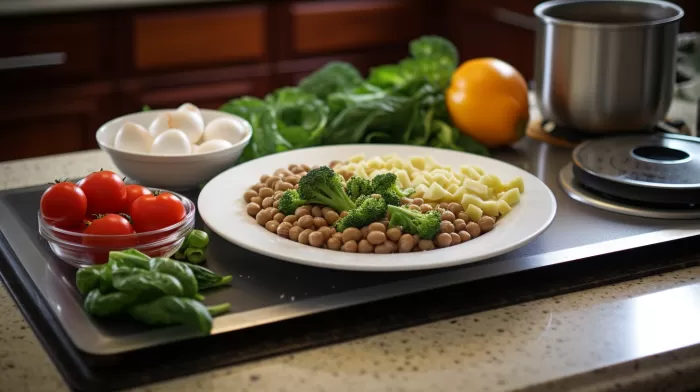Having surgery can be stressful and traumatic, but did you know that altering your diet beforehand could improve your chances of a quick recovery? Research from Brigham and Women’s Hospital indicates that consuming certain foods before your operation can reduce your risk of complications.
In this article, you’ll learn about the foods you should eat before surgery, the benefits of a low-fat diet, and the importance of nutrient-dense meals for optimal recovery. Let’s dive right in.
Low-Fat Meals and Smaller Portions
The researchers discovered that eating meals low in fat and calories for a few weeks before surgery can enhance your healing process. In lab tests, they demonstrated that low-fat meals and smaller portions can ease the body’s reaction to the trauma of being cut open. Additionally, this type of diet may also minimize inflammation when a surgeon slices through layers of body fat to reach the organs he or she is working on.
The scientists measured how body fat responds to incisions and how consuming fewer calories impacts the reaction to tissue trauma during surgery. According to researcher C. Keith Ozaki, surgeons have come a long way in minimizing trauma to specific organs like the heart, blood vessels, liver, and more. However, there has been little focus on how the fat we cut through to expose these organs responds to the surgical process.
This research challenges everyone to better understand how fat reacts to surgical trauma, what factors influence this response, and how this response is linked to patient outcomes.
Nutrient-Dense Foods
Incorporating smaller, nutrient-dense meals into your diet before surgery can help protect the body against the stress of the operation. This is especially crucial for those undergoing vascular surgery, who face a higher risk of complications.
But which foods should you eat before your surgery? Here are some tips to help you optimize your pre-operative nutrition:
- Emphasize lean protein sources like chicken or turkey breast, fish, eggs, legumes, and low-fat dairy, to provide your body with essential amino acids for tissue repair and wound healing.
- Include whole grains like brown rice, quinoa, whole-wheat pasta, and oats, for a steady energy supply and fiber to maintain gastrointestinal function.
-
Prioritize plenty of fruits and vegetables, which are rich in vitamins, minerals, and antioxidants that support the immune system.
-
Opt for healthy fats such as avocado, nuts, seeds, and olive oil, that can help in controlling inflammation and promote overall health.
-
Stay hydrated by drinking plenty of water, as proper hydration is essential for recovery and overall health.
One example of a nutrient-dense meal could be grilled salmon with quinoa, roasted vegetables, and a drizzle of olive oil. This meal provides an ideal combination of lean protein, whole grains, and healthy fats to support your recovery.
Planning Your Pre-Operative Diet
When planning your pre-operative diet, always consult with your surgeon, as certain medications and supplements may need to be adjusted or discontinued. Your surgeon can provide personalized guidance based on the specifics of your upcoming surgery and your overall health status.
It’s equally important to maintain a balanced and nutrient-dense diet after your surgery, as your body requires proper nutrition to heal fully and efficiently. A balanced diet can also help in reducing the risk of complications and support a speedy recovery.
Final Thoughts
Eating a low-fat and nutrient-dense diet in the weeks leading up to surgery can significantly improve your chances of a quick and smooth recovery. By carefully choosing your food and staying hydrated, you are setting yourself up for success and giving your body the best possible conditions for healing. Consult with your surgeon to create the right pre-and post-operative nutrition plan tailored to your individual needs, and you’ll be on your way to a healthier and stronger you after surgery.



